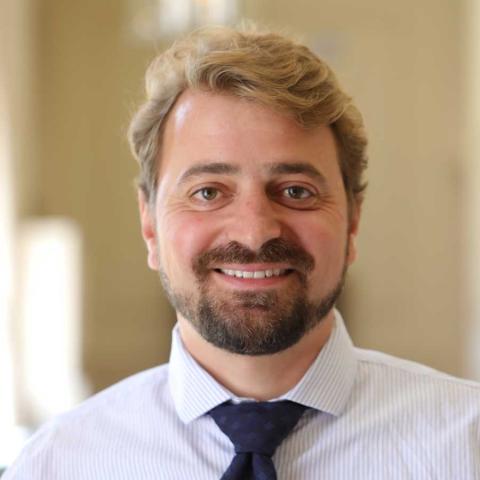An 'Expedition Unknown'
Research led by Baylor University faculty and students was shared on screens across the nation as they shared their findings from the San Giuliano Archaeological Research Project during Season 10, episode 14 of the primetime Discovery adventure series “Expedition Unknown.” Hosted by Josh Gates, “Expedition Unknown” chronicles Gates’ global adventures as he investigates iconic unsolved events, lost cities and buried treasure. Filmed in June, the episode, “Finding Italy’s Lost Empire,” features Baylor Honors College professors Davide Zori, Ph.D., and Colleen Zori, Ph.D. The pair led Gates through their archaeological dig site that features research surrounding the Etruscan occupation of the San Giuliano plateau in central Italy.
“We have had such an incredible experience,” Davide Zori said. “This episode, ‘Finding Italy’s Lost Empire,’ showcases the work of numerous Baylor faculty members from different disciplines working alongside our undergraduate students on a collaborative research project.”
Baylor’s involvement with Discovery began when the project was awarded an Explorer’s Club Discovery grant. The grant allowed the team to purchase a drone and a LiDAR (laser imaging, detection and ranging) antenna, which is used to make high-resolution maps. The equipment helps archaeologists detect such things as underground tombs.
“Producers from the show learned of our research because of the grant,” Davide Zori said. “From there, they became more and more interested in the project. After talking with them, it became clear they wanted to do justice to the site and the people who are a part of the community. I am thrilled for a broader audience to see what makes this unique site so intriguing.”
Since 2016, the Zoris — in partnership with Lori Baker, B.A. ’93, M.A. ’94, Ph.D., professor of anthropology, Deirdre Fulton, Ph.D., associate professor of Hebrew Bible/Old Testament, James Fulton, Ph.D., assistant professor of geosciences, and Alden Smith, Ph.D., professor of classics — have investigated the Etruscan occupation of the plateau and the transitions that followed, including incorporation into the Roman Empire, transformations in the medieval settlement pattern and final abandonment of the site sometime before A.D. 1300. Baylor students spend six weeks at the site as a part of Archaeology Research in Italy — a summer study abroad program. From morning until around 5 p.m., students are in the field collecting materials. They spend their evenings uploading photographs and analyzing ceramics, skeletal material and anything else they recover.
“By leading this one-of-a-kind archaeological dig, our faculty are achieving great things on the international stage. We also can see in their work how all the elements of Illuminate fit together,” said Honors College Dean Douglas Henry, Ph.D. “They are fulfilling a Christian calling to understand and remember the lives of a long-lost people made by God, and they are giving students valuable hands-on learning. Discovery is showcasing their research on its most highly rated prime time series, and the artifacts recovered at the dig will become part of a treasured cultural heritage preserved for future generations to view, admire and ponder.”

